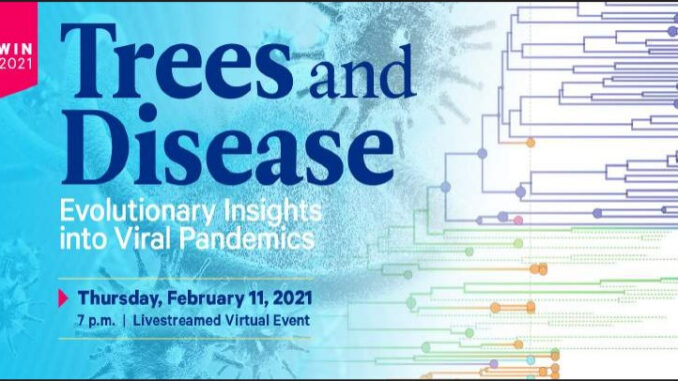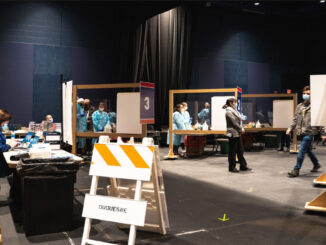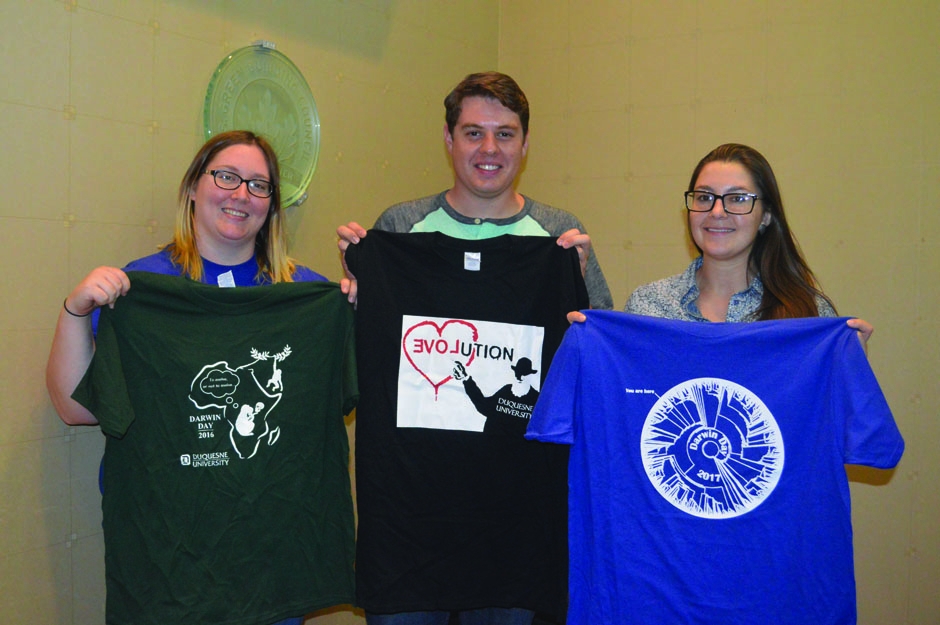
Peyton Harris | Staff Contributor
The beginning of a life that would drastically change the way the scientific community and the world as a whole believed it functioned started on Feb. 12, 1809.
This date is the birth of English naturalist Charles Darwin, who fostered the theory of evolution by natural selection, which since has become the foundation for everyday evolutionary studies and works. Two hundred twelve years later, Duquesne University and many educational institutions across the globe paid tribute to the man whose work is still being put into practice today, and in relation to current events: the study of COVID-19.
Annually, Duquesne hosts an event called “Darwin Day” in which one facet of Darwin’s vast studies are expanded upon to a wider audience. “The Department of Biological Sciences, with support from the Bayer School of Natural & Environmental Sciences, has held a public talk to celebrate Darwin Day for nearly 20 years. Dr. David Lampe started this event at Duquesne in 2003, and now he and co-coordinate the annual event,” said Duquesne University professor Michael Seaman.
Seaman said that while the topic varies from year to year, a discussion about viruses was “a perfect fit” for this year’s Darwin Day.
“Although back in July and August, when we were making these decisions, we were afraid that by February 2021 people would be sick of talking about COVID, but clearly we aren’t,” Seaman said. “This year, being virtual, also made some things easier. We didn’t have to fly the speaker in from far away, which I think made it more likely that our speaker, Dr. Michael Worobey, would agree to give our annual talk.”
This year’s discussion was held virtually due to the pandemic professor within the University of Arizona’s Department of Ecology and Evolutionary Biology. Seaman opened the discussion with a few remarks on Darwin and the ensuing talk, saying “nothing in biology makes sense except in the light of evolution.” He then quoted renowned evolutionary biologist Theodusius Dobzhansky, saying, “Nothing in biology makes sense, except in the light of evolution.”
“This is as true today as it was when he said it nearly 50 years ago. Evolution is the single unifying principle in biology,” Seaman said. “The fact that humans share a common ancestor with mice, fruit flies and bacteria is what allows us to use these species in our research as proxies for human biology. No field of biology is not directly impacted by Darwin’s theory of evolution.” Upon turning the discussion and included a variety of universities across the country.
The main discussion, titled “Trees and Disease: Evolutionary Insights into Viral Pandemics,” was led by Seaman. the featured guest speaker was Worobey, a over to Worobey, Seaman dove into how genomic epidemiology is working to track and discover different strains of COVID-19, all while sticking to the basic Darwinian principles of evolutionary theory.
While the first diagnosed case in the U.S. was at SeattleTacoma International Airport on Jan. 15, 2020, the work done by Worobey and his colleagues, as well as those at The Seattle Flu Project, concluded that since multiple genomic sequences were being found in Washington state, COVID-19 had been in the area for quite some time prior to the first official U.S. case. “In retrospect, based on analyses of viral genome sequences using evolutionary trees, we now know that the first COVID case in the U.S. did not lead to an outbreak in Seattle,” Seaman said.
“This was probably the result of swift action to isolate the patient and prevent contact with other people. This was the first good evidence, way back in January of 2020, that aggressive public health measures could be essential in preventing the spread of COVID.”
The discussion explored different ways in which Darwinist theories played a role in determining disease origin. The speakers discussed the likelihood that the COVID-19 U.K. variant, known as B.117, was around for quite some time with an unknown origin as early as November, but was first recognized by the U.K. a short time later. It is also likely that B.117 will become the variant most prevalent in the U.S. by this March, due to its potent transmission rate.
By the end of the discussion, questions that had been blindly submitted into the chat feature were answered by Worobey, who was optimistic in the efforts of mitigation as well as the vaccines coming to the forefront and noted that “the escape-hatch of vaccinations” would bring about a large change in transmission and furthering of the disease.
Most questions had been answered before Worobey experienced technical difficulties and was disconnected from the talk, leaving the rest of the discussion to Seaman. Seaman directed the discussion to apply the works of Darwin to science today, and believes that Darwin’s discoveries continue to be relevant today.
“It is easy to mistakenly think that evolution is only relevant for understanding the distant past,” Seaman said. “But everything that we have learned over the last 150 years of evolutionary biology, including the nature of mutations and natural selection, is directly relevant for combating the ongoing pandemic.”




